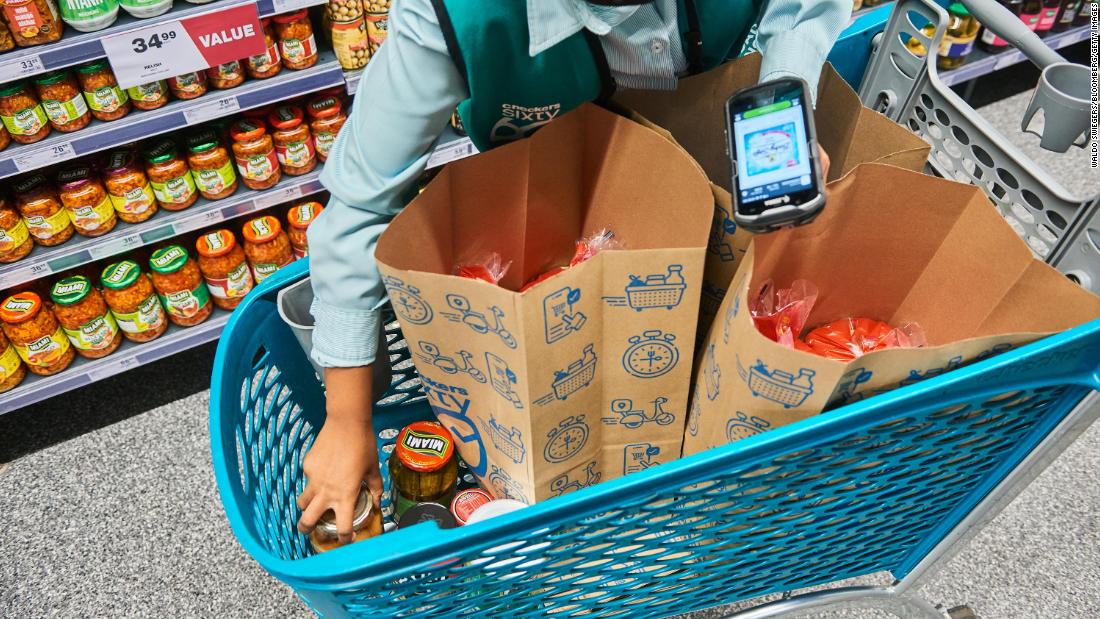African economists sound the alarm over a looming and likely catastrophic lowering of trade volumes between the continent and its warring partners if Russia’s widely condemned incursion into Ukraine isn’t short-lived.
But these gains are on the verge of eroding quickly, analysts worry, signaling a severe disruption in Africa’s food conditions if Russia’s military operation in Ukraine persists.
‘Three months away from hunger’
Parts of Africa could be plunged into hunger in as fast as three months if Russia’s invasion of Ukraine lingers, says Wandile Sihlobo, the Chief Economist of the Agricultural Business Chamber of South Africa.
“In the short term, between now and three months, the conflict will affect food supply primarily from a pricing perspective,” Sihlobo told CNN.
“As net importers of products like wheat, which influences bread and cereals, sunflower oil and maize, African countries are fairly exposed on some of these supplies that are coming out of Russia and Ukraine. There will be challenges if the war continues for more than three months — because ordinarily, countries usually keep stock of supplies for three to five months.”
“Food prices are already high now. If the war stretches, there will be millions of Africans that will be in hunger. We are already expecting millions of people to be in hunger in the areas affected by the drought, so the ongoing conflict will worsen that,” he said.
Africa’s biggest economies such as Nigeria, Egypt, South Africa, Algeria, and Kenya are major importers of Russia’s agricultural exports, putting them at risk of further spikes in food prices if trade is disrupted.
Sihlobo adds that sanctions targeted at Russia could also complicate Africa’s exports.
“Africa exports fruits and vegetables to Russia and Ukraine. Seven percent of South Arica’s citrus goes to Russia, 14 percent of South Africa’s apples and pears goes to Russia. Egypt and Tunisia also export fruits and vegetables to Russia. The challenge with all of these countries is that with all of the sanctions that are placed on Russia by the US and European countries, it influences the financial services sector… even if the logistics will not be immediately affected, it will disrupt the payment system to all of the exporting countries to Russia,” he told CNN.
Taking sides on the conflict
“There will be significant pressure from a multilateral relations point of view as African countries may be forced to take a position on the conflict that is happening between Russia and Ukraine, and that may either adversely or positively affect the relationship between Africa and Russia going forward,” Hadebe says.
For Russian academic, Irina Filatova, taking sides won’t benefit Africa.
“It won’t be in Africa’s benefit to take sides. I think that Africa can try to remain neutral,” said Filatova, who specializes in Russian and African history.
Beyond agriculture, Russia is expanding its influence in African states troubled with insurgency by providing alternative military solutions from those offered by its Western counterparts, which are often determined by human rights considerations.
However, Russia has denied links to private military contractors such as the Wagner Group, which is accused of the abuses.
Hadebe told CNN that arms trade is “one of the key features that have defined the trade relationship between Russia and Africa.”
“Russia is the largest exporter of weapons to sub-Saharan Africa in particular.”
According to Filatova, Russia’s prospects of doubling down on its interests in Africa may be higher in the aftermath of the Ukraine war.
“Russia will be much more interested in maintaining relations with African countries than it was until now… It has already started to develop these relations but in the situation of the global isolation by the western world, it will definitely try to maintain relations with Africa,” she told CNN.
